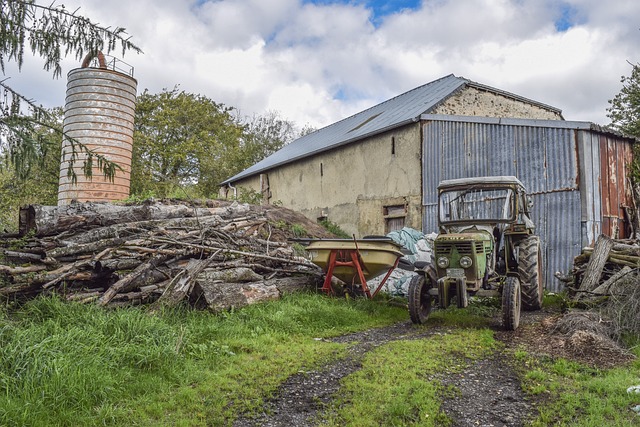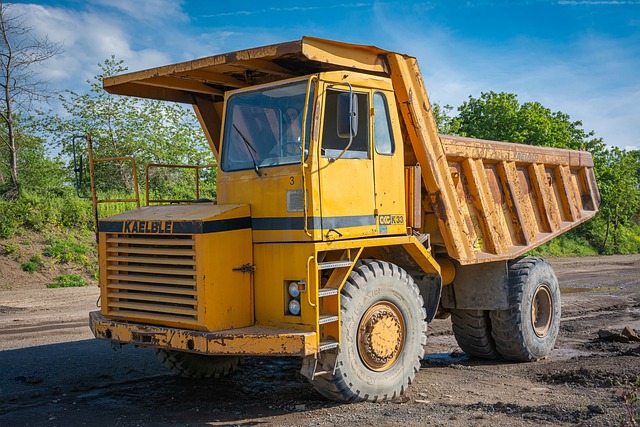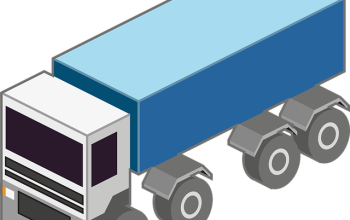A Commercial Truck VIN Check is a powerful tool for fleet managers, providing access to a vehicle's complete history through its unique Vehicle Identification Number (VIN). By inputting this VIN into specialized databases, managers can uncover critical information about manufacturing details, accident reports, and maintenance records. This data helps identify safety risks, predict future issues, ensure compliance with regulations, reduce costs, and enhance overall fleet performance and driver well-being. Regular VIN checks and detailed maintenance records enable proactive risk mitigation, including early identification of vehicle recalls and potential hazards, thereby upholding high safety standards in commercial trucking operations.
In the dynamic arena of commercial trucking, where safety and reliability are non-negotiable, a robust Vehicle Identification Number (VIN) check stands as a frontline defense. This powerful tool provides fleet managers with an in-depth glimpse into their vehicles’ pasts, encompassing accident histories, ownership records, and maintenance logs. As exemplified by recent recalls, such as General Motors’ massive defect-related initiative, proactive VIN checks are crucial for identifying potential hazards before they escalate. By delving into these historical data points, fleet managers can enhance safety standards, mitigate risks, and ensure operational efficiency in an ever-changing trucking landscape.
- Understanding VIN Checks: Unlocking Vehicle History
- The Impact of Historical Data on Fleet Safety
- Preventing Recalls: Proactive Measures for Fleet Managers
- Compliance and Efficiency: Balancing Act for Trucking Businesses
- Best Practices: Enhancing VIN Check Effectiveness
Understanding VIN Checks: Unlocking Vehicle History

A Commercial Truck VIN Check is more than just a number; it’s a gateway to a vehicle’s past. The unique identifier, known as a Vehicle Identification Number (VIN), serves as a digital fingerprint that unlocks a wealth of information. By inputting this code into specialized databases, fleet managers gain access to a vehicle’s history, from its manufacturing details and original ownership to any reported accidents or significant repairs. This isn’t merely about checking for obvious damage; it involves unearthing crucial insights that can impact safety, performance, and compliance with industry regulations.
Each VIN check is like piecing together a puzzle, revealing the vehicle’s journey over time. It allows professionals to identify patterns, spot potential red flags, and make informed decisions. For instance, knowing that a truck has been in multiple accidents or has had frequent maintenance issues can prompt closer scrutiny and necessary repairs, preventing future incidents. This proactive approach not only saves costs but also ensures the safety of drivers and other road users, making it an indispensable practice in the commercial trucking industry.
The Impact of Historical Data on Fleet Safety

Historical data plays an indispensable role in enhancing fleet safety, offering a window into past events that can predict future risks. By analyzing a vehicle’s history through VIN checks, managers gain valuable insights into potential hazards. For instance, identifying previous accidents, especially those related to brake failures or tire issues, can help anticipate similar problems and implement preventive measures. Moreover, understanding ownership records and maintenance logs enables fleet operators to uncover recurring maintenance trends, ensuring that regular servicing is up to par.
This historical perspective empowers fleet managers to make data-driven decisions, prioritizing vehicle inspections and repairs based on past experiences. As a result, they can proactively mitigate risks, improve safety standards, and reduce the likelihood of costly breakdowns or accidents, ultimately fostering a culture of operational excellence and driver well-being.
Preventing Recalls: Proactive Measures for Fleet Managers

Fleet managers play a pivotal role in preventing vehicle recalls and ensuring the safety of their drivers and the public. A proactive approach to fleet management involves integrating regular VIN checks as a standard procedure. By cross-referencing vehicle data against recall notices and industry safety alerts, managers can identify at-risk vehicles early on. This enables them to take immediate action, such as scheduling repairs or replacing parts, thus avoiding potential accidents caused by unrepaired defects.
Moreover, maintaining comprehensive maintenance records through VIN checks allows fleet managers to track vehicle performance over time. Identifying patterns of recurring issues in a particular model or make can prompt further investigation and even the implementation of preventive measures. Regular updates on safety recalls and proactive monitoring of fleet vehicles are key strategies to mitigate risks and maintain high safety standards in commercial trucking operations.
Compliance and Efficiency: Balancing Act for Trucking Businesses

In the commercial trucking industry, maintaining compliance with safety standards while optimizing operational efficiency is a delicate balancing act. A comprehensive Commercial Truck VIN Check plays a pivotal role in achieving this equilibrium by offering a window into a vehicle’s past, present, and potential future performance. By scrutinizing ownership records, accident histories, and maintenance logs, fleet managers can identify vehicles that may require additional scrutiny or repairs, ensuring compliance with safety regulations.
This proactive approach not only helps avoid costly fines and legal penalties but also reduces the risk of accidents and breakdowns. Moreover, it enables trucking businesses to make informed decisions about vehicle replacements, investments in maintenance programs, and training for drivers, ultimately enhancing operational efficiency and minimizing disruptions to their supply chain operations.
Best Practices: Enhancing VIN Check Effectiveness

To maximize the effectiveness of Commercial Truck VIN Checks, fleet managers should adopt best practices that go beyond basic verification. One crucial step is to utilize advanced digital platforms that streamline data collection and analysis. These tools often incorporate AI and machine learning algorithms to detect patterns and anomalies in vehicle history, enhancing accuracy and revealing potential red flags that might be missed through manual inspection. Regular updates and real-time monitoring are equally important; as vehicles move throughout the fleet, continuous tracking ensures that any new information or changes in ownership or accident records are promptly captured and reflected in the overall profile.
Additionally, establishing a robust internal process for documenting and following up on VIN Check findings is essential. This involves creating clear protocols for communicating results to relevant stakeholders, implementing necessary repairs or maintenance, and updating records accordingly. Regular training sessions for staff involved in these checks can also improve consistency and attention to detail, ensuring that every vehicle undergoes a thorough evaluation and that any identified issues are addressed promptly to maintain the highest standards of safety and reliability within the fleet.
In the dynamic arena of commercial trucking, where safety and reliability are non-negotiable, a Commercial Truck VIN Check stands as a beacon of protection. By providing a comprehensive glimpse into a vehicle’s past, from accident histories to maintenance records, fleet managers can proactively identify potential hazards and take corrective actions. As highlighted by recent recalls like General Motors’ massive initiative, proactive vigilance is key to preventing costly incidents and ensuring compliance with safety standards. Embracing best practices in VIN check procedures empowers trucking businesses to maintain operational efficiency while fostering a culture of safety that benefits both drivers and the road.



